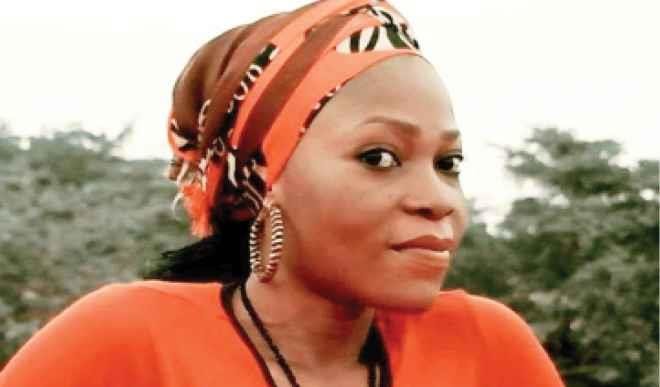Why I sing R&B in Hausa – Mufida Adam
Ibrahim Musa Giginyu, Kano Weekend Magazine: How did you start your music career? Mufida Adam: I started having interest in music when I was a kid of about ten years old. We had a playground in our community we called Dandali in Hausa, where we visited at night to play and dance to Hausa songs, […]


Ibrahim Musa Giginyu, Kano
Weekend Magazine: How did you start your music career?
Mufida Adam: I started having interest in music when I was a kid of about ten years old. We had a playground in our community we called Dandali in Hausa, where we visited at night to play and dance to Hausa songs, such as the famous Charmandudu song, Danfulani na kiwo and many more. I could recall I was always the lead vocalist and the rest sang the choruses. To be honest, that was when my obsession with music started and as I grew up I grew with it.
WM: Did you face any resistance from your family when you decided to go into music?
Adam: Sure I did, obviously owing to the general perception of some people, especially in my part of the country, where music is seen as an interim engagement for struggling people. It has never been seen as a profession. It is also seen as a male domain and not for the ladies. However, personally, I see all these perceptions as a misconception of the industry. The world is changing and there are a lot of things that need to be adopted, not necessarily as they are, but with little modifications to suit our ways. The conservative nature of our society coupled with the rigidity of some of our traditional practices, are some of the things that made part of my family to resist my choice of career. However, with time they all became at ease with my choice and ever since we have been going on well and I have not given them any reason to regret their support.
WM: What kind of music do you do?
Adam: I do Rhythm and Blues in Hausa and English languages. Only a few of us from the north do this.
WM: What challenges do you face as a female singer?
Adam: It has not been easy, being a female singer in this part of the country, because if one has no self-esteem one wouldn’t survive the chains of intimidation from the community and male colleagues in the music industry. The irony here is that most of these intimidations are artificially engineered to dampen your zeal. For instance, once someone just came up to me and said, “get married and stop singing.” These are things that I personally can’t explain. People tend to take my life for granted, because I chose to be a musician people believe that they have a say in my life. Also, being among a few, if not the only female Hausa R&B singer makes me face a lot of marginalization and ridicule from male artists. In most situations I usually find myself excluded in a lot of events that ought to have me enlisted. It has not been easy for me, but I am determined to make a point and that has been my driving force.
WM: You left Nigerian for India. What are you there for?
Adam: It isn’t for leisure. It is a trip that will make a lot of difference in the history of R&B in Nigeria. I am planning a lot of collaborations with prominent Indian artists and my fans should be ready for it because it is going to be something they have never seen before.
WM: People believe musicians can only make it big when they go to Lagos. Are you planning to go that way in the future?
Adam: Not really. My dream in the music industry is beyond Lagos. I am looking at the global scene. It isn’t necessary for one to be in Lagos to make it, but about your content and what you stand for. I have seen artists who moved out of Lagos and still made it in their musical pursuit. We are in a digital era and what you churn out to the public is what is going to sell you out to them. Therefore, It won’t make any difference if I stayed in Kano or elsewhere, it all depends on doing good music, and that’s what I intend to do.
WM: It was reported that you have been making some impact in India-Hausa songs. Is that true?
Adam: Yes, it is. I have been part of a very powerful team that promoted the Hausa-Indian movies in this country.
WM: Does that mean you will venture into acting with time?
Adam: It is possible, but I want to make it clear that when it happens, it won’t be under Kannywood.
WM: What are your happiest moments as a singer?
Adam: My happiest moment is always when I am rehearsing a song or recording in the studio. This is what I enjoy doing and it makes me really happy.
WM: Have you won any award?
Adam: Yes, I have won best female R&B artist award at Arewa Music and Movie Awards AMMA 2016.
